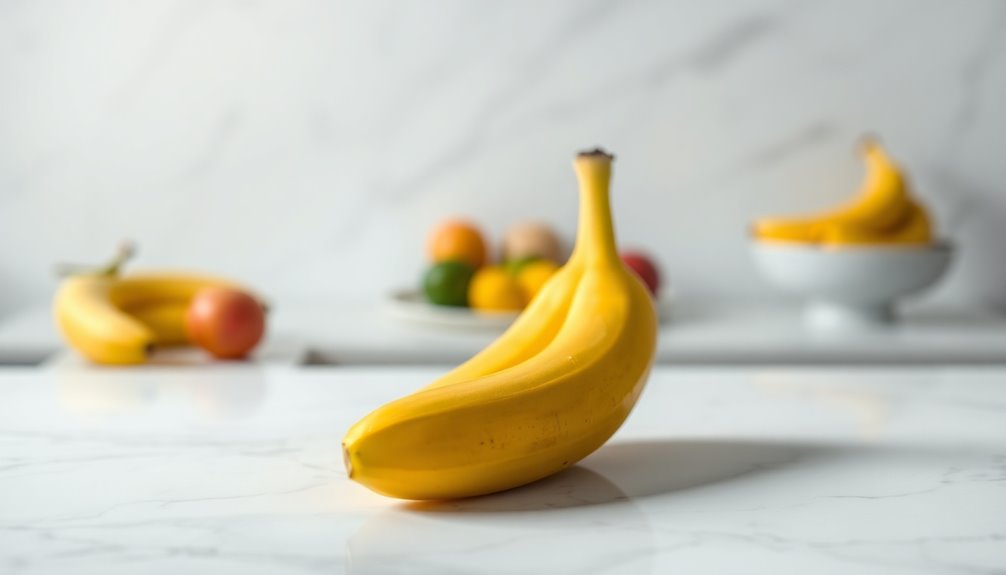The mono diet involves eating only one type of food for an extended period, often for weight loss. While it can help reduce calorie intake and simplify meal prep, this restrictive approach poses risks, like nutritional deficiencies and potential psychological stress. You might find it easier to manage cravings, but relying on just one food can lead to imbalances in essential nutrients. If you choose to try this diet, consider rotating foods for variety and focusing on balanced nutrition. There's plenty more to explore about how to make the most of this approach while maintaining your overall health and well-being.
Key Takeaways
- The mono diet involves eating only one type of food, often for weight loss and simplified meal preparation.
- It can lead to nutritional deficiencies due to the lack of variety in essential nutrients.
- Popular choices include fruits, leafy greens, proteins, and grains, which can be rotated for better nutrition.
- Practicing mindful eating and connecting with others can enhance adherence to the mono diet.
- Long-term sustainability requires monitoring nutrient intake and making gradual lifestyle changes.
What Is the Mono Diet?

The mono diet is often characterized by its simplicity, as it involves consuming only one type of food or food group for an extended period. This approach can range from eating a single fruit, like bananas, to following a more restrictive regimen, such as eating only rice. While the idea might seem straightforward, it raises essential questions about nutritional balance and overall health.
One of the primary reasons people turn to the mono diet is for weight loss. By limiting food choices, you might find it easier to control calorie intake. However, this method can lead to significant nutritional deficiencies. Since you're focusing on just one food type, it's challenging to meet your body's diverse nutrient needs. Essential vitamins, minerals, and macronutrients may be lacking, potentially leading to fatigue or other health issues.
Moreover, the mono diet can foster an unhealthy relationship with food. You might feel isolated or deprived, especially when social situations involve a variety of foods.
It can also create a cycle of restriction followed by binge eating, which is counterproductive to your weight loss goals. Additionally, a varied diet rich in plant-based nutrients can provide essential vitamins, minerals, proteins, and fats for optimal health.
Potential Benefits of the Mono Diet
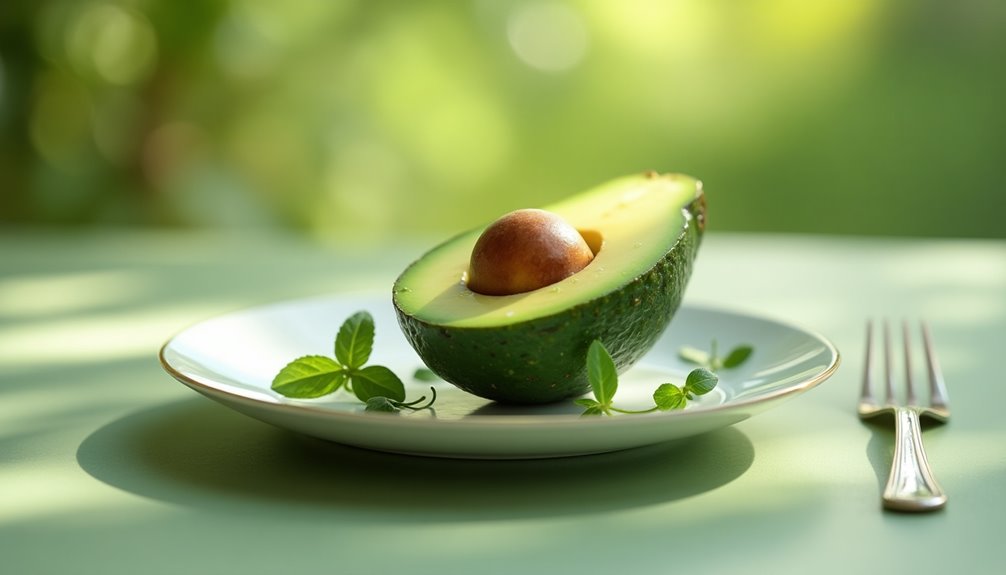
Some individuals find potential benefits in the mono diet, particularly concerning weight management. By focusing solely on one type of food, you may inadvertently create a calorie deficit, which can result in weight loss. When you simplify your meals, it often becomes easier to control portions and resist temptation. Many also report experiencing increased vitality, as a simplified diet may assist your body in processing nutrients more effectively.
Here's a brief overview of some benefits:
| Benefit | Description |
|---|---|
| Weight Loss | Reduced calorie intake can lead to shedding weight. |
| Increased Vitality | Fewer food options may enhance digestion, leading to more energy. |
| Simplicity | Meal preparation is uncomplicated and less time-consuming. |
| Mindfulness | Eating the same food can encourage mindful eating habits. |
| Cost-Effective | Focusing on one food can cut down on grocery expenses. |
By embracing a mono diet, you might find it simpler to establish a routine and create a sense of belonging in a community that values simplicity and health. While it's crucial to make sure that you're still obtaining all necessary nutrients, many individuals discover that the mono diet allows them to connect more deeply with their food, fostering a greater appreciation for what they consume. Furthermore, adopting a simplified diet may help address long-term solutions for managing other health issues like knee pain.
It's vital to approach the mono diet thoughtfully and to listen to your body. Everyone's journey is unique, and finding what works for you can lead to not just weight loss but also enhanced overall well-being.
Risks and Drawbacks to Consider
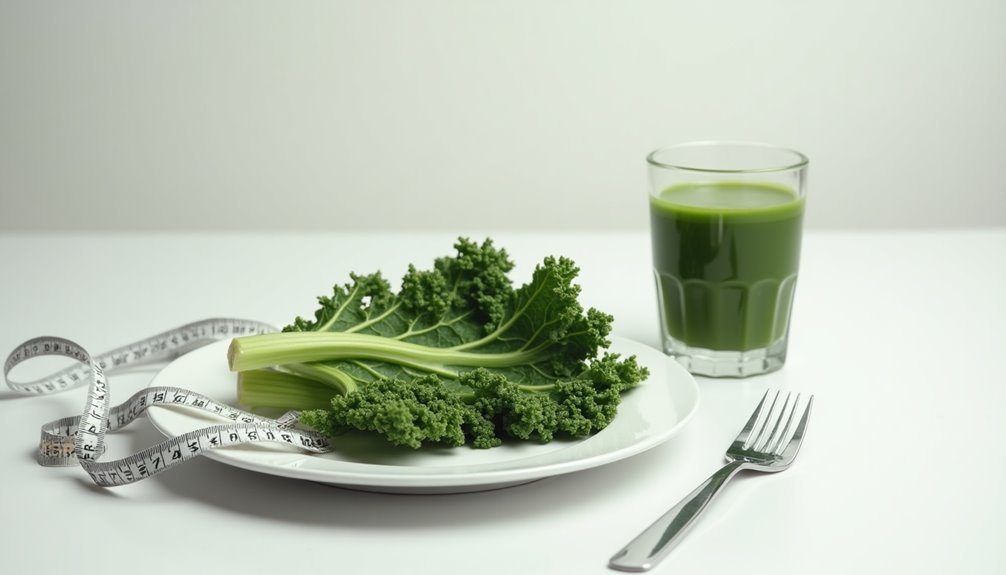
Starting on a key diet may seem straightforward, but it comes with several risks and drawbacks that you should carefully consider. While focusing on a single food can simplify meal planning, it can also lead to serious health implications. One of the most pressing concerns is the potential for nutritional deficiencies. By limiting your diet to just one type of food, you may not get the variety of vitamins and minerals your body needs to function optimally.
For instance, a key diet based on fruit might leave you lacking in essential proteins and healthy fats, which are vital for muscle repair and overall health. Similarly, a key diet centered on grains could result in inadequate intake of certain micronutrients found in fruits and vegetables. These deficiencies can manifest in fatigue, weakened immunity, and even long-term health issues like osteoporosis. Moreover, consuming high-carb bread can cause blood sugar spikes, leading to cravings that may sabotage your dietary goals.
Additionally, the restrictive nature of a key diet can lead to psychological stress. You may find it hard to enjoy social meals or feel deprived, which can ultimately lead to binge eating or abandoning the diet altogether. Many people crave variety in their meals, and eliminating that can create a sense of isolation.
Popular Foods in the Mono Diet
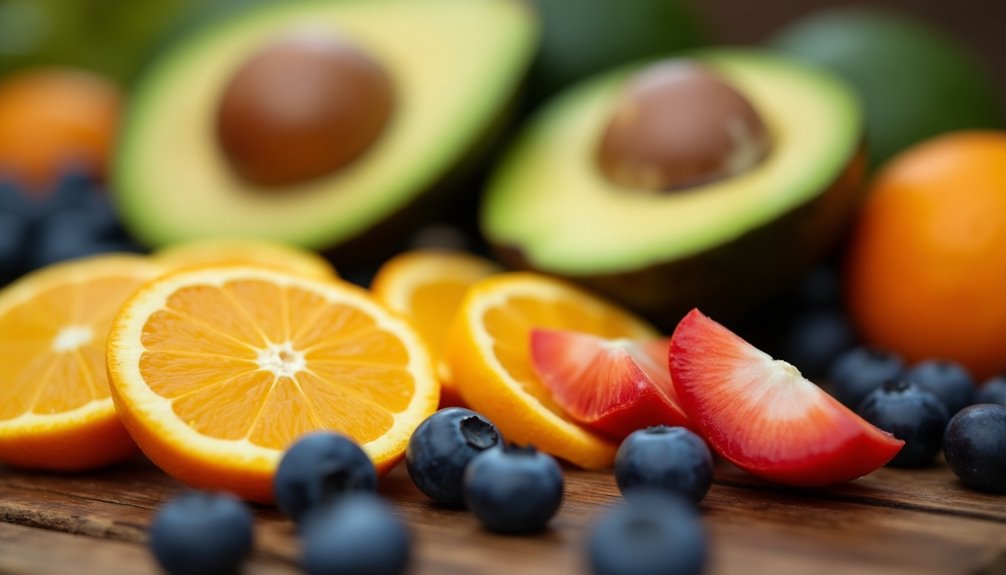
When considering a mono diet, certain foods often come to the forefront due to their popularity and perceived benefits. This approach typically emphasizes simplicity, focusing on one type of food group at a time. Here are three popular food categories you might explore:
- Fruit: Fruits like bananas, apples, or berries are frequently chosen. They're packed with vitamins, minerals, and antioxidants, making them a revitalizing option. Plus, their natural sugars can give you an energy boost.
- Vegetables: Leafy greens, like spinach or kale, are other favorites. They're low in calories yet high in nutrients. Eating just one type, like steamed broccoli, can provide fiber and necessary vitamins while keeping your meals straightforward and easy to prepare.
- Protein and Grains: Some people opt for mono diets centered around protein sources, such as chicken or fish, or grains like quinoa or brown rice. These foods can help you feel full longer and provide essential amino acids and carbohydrates to fuel your day. Additionally, mastering the art of hand sharpening can enhance your cooking experience by ensuring your knives are always ready for precise food preparation.
While each of these food categories has its own unique benefits, it's crucial to remember that a balanced diet usually includes a variety of foods. If you decide to adopt a mono diet, be mindful of how it affects your overall health and well-being.
As you explore these popular foods, you might find a sense of community with others who are also trying this approach, creating a shared experience that can be both enlightening and fulfilling.
Tips for Success on the Mono Diet
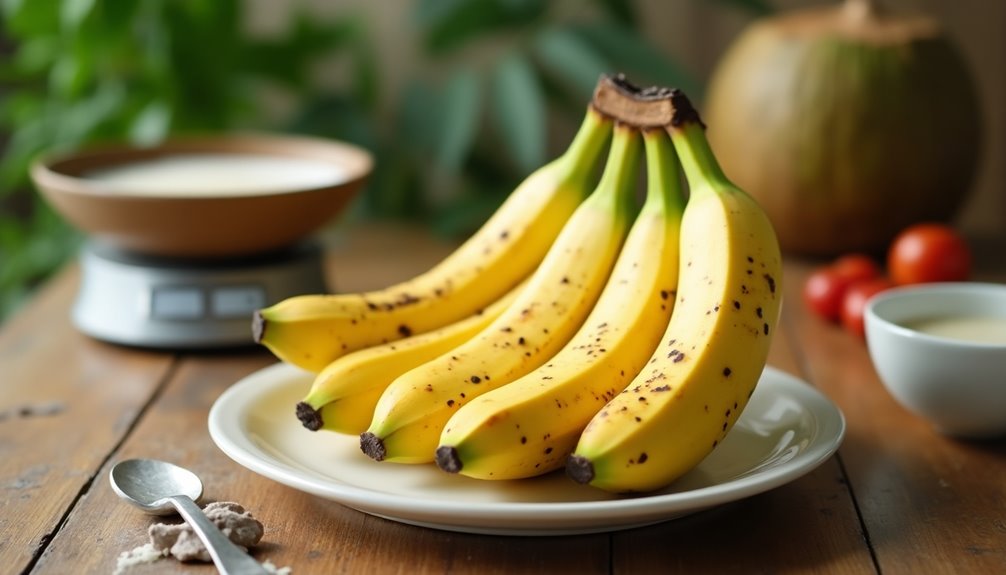
Adopting a mono diet can be an interesting expedition, but success often depends on a few key tactics.
First, effective meal planning is essential. By preparing your meals in advance, you can guarantee you're adhering to the diet while still enjoying what you eat. Choose a few foods you love and rotate them throughout the week to keep things engaging. This can help you avoid feeling deprived and make it easier to stick with your selected foods.
Next, practice mindful eating. This means paying attention to what you eat, relishing each bite, and being conscious of your hunger and fullness cues. Mindful eating can improve your relationship with food and make the mono diet feel less restrictive. By truly engaging with your meals, you might find that you appreciate the flavors and textures of your chosen foods more profoundly.
Moreover, it's crucial to listen to your body. If you find yourself feeling fatigued or unwell, it might be a sign that your body needs more variety. Don't hesitate to adjust your mono diet approach based on how you feel. Incorporating a variety of exercises, such as mini band workouts, can enhance your overall fitness and support your dietary efforts.
Lastly, connect with others who are also exploring the mono diet. Sharing experiences and tips with a community can provide encouragement and foster a sense of belonging. Remember, embarking on this journey doesn't mean you have to go it alone. By employing these strategies, you're more likely to find success and satisfaction on your mono diet journey.
Long-Term Sustainability of the Mono Diet

How can you maintain the mono diet in the long run without feeling deprived? Achieving long-term sustainability on this diet involves careful planning and a commitment to nutritional balance. It's crucial to integrate a variety of foods into your regimen, even if you're focusing primarily on one type. Here are three strategies to keep in mind:
- Rotate your food choices: Instead of sticking to one food item, contemplate rotating among a few that you enjoy. For example, if you're focusing on fruits, alternate between bananas, apples, and berries. This keeps things fresh and enjoyable.
- Mind your portion sizes: Eating one type of food doesn't mean you should overindulge. Monitoring portion sizes can help you maintain a balanced intake while avoiding feelings of deprivation. It's significant to listen to your body's hunger signals.
- Incorporate lifestyle changes: Pair the mono diet with other healthy lifestyle adjustments such as regular exercise, hydration, and mindfulness practices. These changes can enhance your overall well-being and make the diet feel less restrictive.
While the mono diet can provide quick results, focusing on nutritional balance and making gradual lifestyle changes will help you sustain it in the long run. Following diets may lead to confusion and making your journey enjoyable and fulfilling. By remaining flexible and open to experimentation, you'll foster a healthy relationship with food.
Frequently Asked Questions
Can the Mono Diet Lead to Nutrient Deficiencies?
Yes, following a restrictive diet can lead to nutrient deficiencies. You might miss out on essential vitamins and minerals that your body needs for peak function. The potential risks include weakened immune function and fatigue, which can have significant health implications over time.
It's important to maintain a balanced approach to eating, ensuring you get a variety of nutrients to support overall well-being and help you feel your best in your daily life.
How Does the Mono Diet Impact Mental Health?
Did you know that nearly 30% of people experience mood swings due to their diet? When you're on a restrictive eating plan, it can greatly impact your cognitive function and emotional well-being. You might find your stress levels rising, leading to irritability and anxiety.
A balanced diet supports stable mood and mental clarity, so prioritizing variety in your meals can enhance your overall mental health and help you feel more connected to others.
Is the Mono Diet Safe for Athletes?
Is the mono diet safe for athletes? While some may find it appealing, you must take into account performance concerns. Restricting your diet to one type of food can result in nutritional deficiencies, which could adversely affect your athletic performance. Balanced nutrition is vital for energy, recovery, and overall health. It's important to make sure you're meeting all your dietary requirements to support your training and goals while staying safe and healthy.
Can Children Follow the Mono Diet?
When you consider childhood nutrition, it's important to remember that kids need diverse nutrients for best growth and development. A restrictive diet can jeopardize their health, leading to deficiencies that stunt their progress.
While some may argue simplicity in eating, children thrive on variety, which fuels their energy and supports their immune systems. Balancing their plates with different foods guarantees they feel nourished and included, fostering a sense of belonging in social settings.
How Does the Mono Diet Affect Metabolism?
When considering how a restrictive diet affects your metabolism, noting that long-term effects can vary widely is important. You might experience a decrease in metabolic rate if your body receives fewer nutrients, leading to energy conservation. This adaptation can slow down weight loss over time.
Balancing your diet is vital, as a sustainable approach supports a healthier metabolic function and overall well-being, fostering a sense of belonging within your health community.
Conclusion
In considering the mono diet, you might find yourself torn between its simplicity and potential nutritional gaps. While it can lead to quick weight loss and ease of meal prep, the lack of variety may leave you feeling deprived in the long run. Balancing short-term benefits with the risk of nutrient deficiency is essential. Ultimately, if you choose to explore this diet, listen to your body and stay informed to make sure you're fueling your health, not compromising it.

